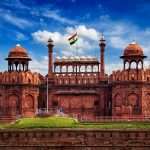India’s rich history, cultural heritage, and architectural marvels make it an ideal destination for educational tourism. Educational tourism combines travel with learning experiences, offering visitors the opportunity to explore historical sites, archaeological wonders, and cultural landmarks while gaining insights into the country’s diverse traditions, customs, and civilizations. In this article, we delve into the world of educational tourism in India, highlighting the unique learning adventures that await travelers at the country’s historic sites.
Understanding India’s Ancient Civilization
India is home to some of the world’s oldest and most fascinating civilizations, including the Indus Valley Civilization, which flourished over 5,000 years ago in present-day Pakistan and northwestern India. Educational tourists can visit archaeological sites such as Mohenjo-Daro and Harappa, where they can explore the ruins of ancient cities, decipher hieroglyphic inscriptions, and learn about the daily life, culture, and achievements of the people who lived there.
Similarly, the ancient city of Varanasi, situated on the banks of the sacred river Ganges, offers educational tourists the opportunity to immerse themselves in the living history of India’s spiritual and cultural heritage. Visitors can explore narrow alleyways, ancient temples, and bustling markets, witness traditional rituals and ceremonies along the ghats, and gain insights into the religious beliefs, practices, and traditions that have shaped Indian civilization for millennia.
Exploring Architectural Marvels
India’s architectural heritage is as diverse as it is magnificent, with a wealth of historic monuments, palaces, forts, and temples that showcase the country’s rich artistic and cultural heritage. Educational tourists can marvel at the architectural splendor of the Taj Mahal in Agra, a UNESCO World Heritage Site and one of the Seven Wonders of the World, which epitomizes the pinnacle of Mughal architecture and craftsmanship.
Similarly, the ancient cave temples of Ajanta and Ellora in Maharashtra provide insights into India’s rich artistic traditions and religious beliefs, with intricately carved sculptures, exquisite murals, and rock-cut architecture that date back over 2,000 years. Visitors can explore the caves’ richly decorated interiors, learn about the stories and legends depicted in the artwork, and appreciate the skill and creativity of the ancient artisans who created these masterpieces.
Discovering Cultural Heritage
India’s cultural heritage is as diverse as its landscape, with a myriad of traditions, customs, and rituals that reflect the country’s rich tapestry of ethnic, linguistic, and religious diversity. Educational tourists can participate in cultural immersion experiences such as attending traditional festivals, visiting rural villages, and interacting with local artisans and craftsmen to gain insights into India’s living heritage.
For example, in the state of Rajasthan, visitors can explore the vibrant culture of the Rajput kings, with their majestic forts, opulent palaces, and colorful festivals that celebrate the region’s rich history and traditions. Educational tourists can learn about Rajasthani art and architecture, witness traditional folk dances and music performances, and experience the warm hospitality of the local people.
Studying Environmental Conservation
In addition to its cultural and historical attractions, India offers educational tourists the opportunity to learn about environmental conservation and sustainable development initiatives. Visitors can explore national parks, wildlife sanctuaries, and eco-tourism destinations such as Ranthambore National Park in Rajasthan, Kaziranga National Park in Assam, and Periyar Wildlife Sanctuary in Kerala, where they can observe diverse ecosystems, wildlife species, and conservation efforts in action.
Educational tourists can participate in guided nature walks, wildlife safaris, and birdwatching tours, learn about the importance of biodiversity and ecosystem services, and engage with local communities and conservation organizations to support conservation initiatives and promote sustainable tourism practices.
Conclusion
Educational tourism in India offers travelers a unique opportunity to embark on learning adventures that combine exploration, discovery, and cultural immersion with the pursuit of knowledge and understanding. Whether exploring ancient civilizations, marveling at architectural wonders, discovering cultural heritage, or studying environmental conservation, educational tourists can gain insights into India’s rich history, diverse cultures, and natural beauty while fostering cross-cultural understanding, appreciation, and respect. As the world continues to embrace the values of lifelong learning and experiential education, India’s historic sites serve as living classrooms and laboratories where travelers can engage in transformative educational experiences that enrich their lives and broaden their perspectives in an increasingly interconnected and interdependent world.
Read more: Art and Culture Experiences: Unveiling India’s Creative Genius






